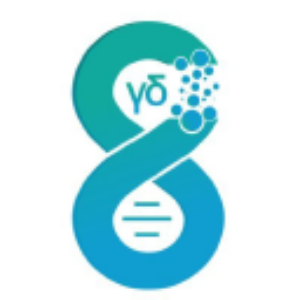IN8bio Announces Publication on Novel Gamma-Delta T Cell Therapy for Glioblastoma in Frontiers in Immunology
Peer-reviewed publication discusses current strategy and future direction of new treatment for glioblastoma using novel gamma-delta T cell based adoptive cellular therapy
NEW YORK, Feb. 14, 2024 (GLOBE NEWSWIRE) -- IN8bio, Inc. (NASDAQ: INAB), a leading clinical-stage biopharmaceutical company developing innovative gamma-delta T cell therapies, today announced a publication in Frontiers in Immunology that reviews IN8bio’s novel approach for solid tumors, such as glioblastoma (GBM), an aggressive form of brain cancer.
Cellular therapies, particularly chimeric antigen receptor T cell therapies (CAR-T), have shown promise in hematologic malignancies but have faced significant challenges when applied to solid tumors like GBM. These obstacles include rapid tumor growth, antigen heterogeneity, and limited response to current therapies.
The publication, titled: “Adoptive cell therapy for high grade gliomas using simultaneous temozolomide and intracranial mgmt-modified γδ t cells following standard post-resection chemotherapy and radiotherapy: current strategy and future directions,” explains the mechanism of action behind IN8bio’s novel therapeutic approach called DeltEx Drug Resistance Immunotherapy (DRI) and the current strategy and future directions for this treatment.
The INB-200 and INB-400 studies by IN8bio addresses the challenges towards targeting solid tumors by harnessing the innate immune functions of gamma-delta T cells. GBM cells constitutively express stress-associated NKG2D ligands (NKG2DL), which can be further upregulated through the DNA damage response (DDR) pathway triggered by alkylating agents like temozolomide (TMZ).
“We believe our results to date represent a significant advancement in the treatment of GBM. By combining standard chemotherapy with gamma-delta T cells genetically engineered to resist the lymphodepleting effects of chemotherapy, we are creating a synergistic effect that enhances the immune response against GBM while minimizing toxicity to healthy tissues,” said Lawrence Lamb, Ph.D., Chief Scientific Officer and Co-Founder of IN8bio. “This new treatment may improve the survival and quality of life of patients with GBM by preventing tumor recurrence and enhancing the immune response to eliminate residual cancer cells.”
The current standard of care for newly diagnosed GBM typically involves primary tumor resection followed by six weeks of chemoradiation therapy, succeeded by six cycles of monthly maintenance therapy with TMZ. This regimen typically yields a median progression-free survival (PFS) of 6 to 7 months and an overall survival (OS) ranging from 14 to 16 months. IN8bio‘s Phase 1 trial (INB-200) assessing the safety and efficacy of intracranial infusions of autologously derived DeltEx DRI gamma-delta T cells in addition to standard-of-care maintenance therapy suggests that the therapy is manageable with a possible improvement in PFS.
In the Phase 1 study, cells from the patient are isolated, expanded and modified prior to being delivered intracranially to the tumor cavity every month in combination with maintenance TMZ. The trial assesses three different dosing regimens from a single dose delivered on cycle 1, day 1 in Cohort 1, to three doses delivered on day 1 of cycles 1-3 in Cohort 2, to six doses delivered on day 1 of cycles 1-6 in Cohort 3. All patients receive 1x107 cells per dose. The trial aims to improve PFS by targeting residual cancer cells. Of the eight patients who have completed scheduled dosing, all have exceeded the median PFS expected with standard-of-care therapy alone.
IN8bio is also conducting a Phase 2 clinical trial of a genetically modified autologous gamma-delta T cell therapy (INB-400) targeting newly diagnosed GBM. The study will assess the safety, efficacy and tolerability of genetically modified DeltEx DRI cells at leading medical centers across the United States.
About INB-200
INB-200 is a genetically modified autologous DRI product candidate for the treatment of solid tumors. This novel platform utilizes genetic engineering to generate chemotherapy-resistant gamma delta T cells which can be administered concurrently with standard-of-care treatment in solid tumors. This is a powerful, synergistic treatment approach enabling gamma-delta T cells to persist in the presence of chemotherapy, and maintain their natural ability to recognize, engage and kill cancer cells.
INB-200 is the first genetically engineered gamma-delta T cell therapy to be administered to patients with solid tumors and our initial indication is in GBM.
About INB-400
INB-400 is IN8bio’s DeltEx autologous and allogeneic DRI technology. Allogeneic INB-400 will expand the application of DRI gamma-delta T cells into other solid tumor types through the development of allogeneic DeltEx DRI technology.
About IN8bio
IN8bio is a clinical-stage biopharmaceutical company focused on the discovery, development and commercialization of gamma-delta T cell product candidates for solid and liquid tumors. Gamma-delta T cells are a specialized population of T cells that possess unique properties, including the ability to differentiate between healthy and diseased tissue. IN8bio’s DeltEx platform employs allogenic, autologous, iPSC and genetically modified approaches to develop cell therapies, designed to effectively identify and eradicate tumor cells.
IN8bio has initiated a Phase 2 trial of INB-400 in GBM at multiple centers across the United States and has two ongoing Phase 1 trials in solid and hematologic tumors, including INB-200 for GBM and INB-100 for patients with hematologic malignancies undergoing transplantation. IN8bio also has a broad portfolio of preclinical programs focused on addressing other hematological and solid tumor cancers. For more information about IN8bio and its programs, please visit www.IN8bio.com.
Forward Looking Statements
This press release may contain forward-looking statements made pursuant to the safe harbor provisions of the Private Securities Litigation Reform Act of 1995. These statements may be identified by words such as “aims,” “anticipates,” “believes,” “could,” “estimates,” “expects,” “forecasts,” “goal,” “intends,” “may,” “plans,” “possible,” “potential,” “seeks,” “will” and variations of these words or similar expressions that are intended to identify forward-looking statements, although not all forward-looking statements contain these words. Forward-looking statements in this press release include, but are not limited to, statements regarding the ability of CAR-T cellular therapies to treat hematologic malignancies and GBM; the ability of the INB-200 study (i) to present a significant advancement in the treatment of GBM, (ii) create a synergistic effect that enhances the immune response against GBM while minimizing toxicity to healthy tissues and (iii) improve the survival and quality of life of patients with GBM by preventing tumor recurrence and enhancing the immune response to eliminate residual cancer cells; the ability of IN8bio’s Phase 1 trial in INB-200 to improve PFS by targeting residual cancer cells; and extending IN8bio’s cash runway into 2025; IN8bio’s ability to extend runway upon receipt of additional capital from the December 2023 private placement; IN8bio’s ability to raise additional capital from the December 2023 private placement; IN8bio’s ability to advance its work in other solid tumor indications; the potential for INB-400 to treat GBM; the timing of initiation, progress and scope of clinical trials for IN8bio’s product candidates, including INB-100, INB-200 , INB-300 and INB-400; and IN8bio’s ability to achieve anticipated milestones, including expected data readouts from its trials, enrollment of additional patients in its clinical trials and advancement of clinical development plans. IN8bio may not actually achieve the plans, intentions or expectations disclosed in these forward-looking statements, and you should not place undue reliance on these forward-looking statements. Actual results or events could differ materially from the plans, intentions and expectations disclosed in these forward-looking statements as a result of various factors, including: risks to site initiation, clinical trial commencement, patient enrollment and follow-up, as well as IN8bio’s ability to meet anticipated deadlines and milestones, presented by public health crises as well as rising inflation and regulatory developments; uncertainties inherent in the initiation and completion of preclinical studies and clinical trials and clinical development of IN8bio’s product candidates; the risk that IN8bio may not realize the intended benefits of its DeltEx platform; availability and timing of results from preclinical studies and clinical trials; whether the outcomes of preclinical studies will be predictive of clinical trial results; whether initial or interim results from a clinical trial will be predictive of the final results of the trial or the results of future trials; the risk that trials and studies may be delayed and may not have satisfactory outcomes; potential adverse effects arising from the testing or use of IN8bio’s product candidates; expectations for regulatory approvals to conduct trials or to market products; IN8bio’s reliance on third parties, including licensors and clinical research organizations; and other important factors, any of which could cause our actual results to differ from those contained in the forward-looking statements, are described in greater detail in the section entitled “Risk Factors” in our Quarterly Report on Form 10-Q filed with the Securities and Exchange Commission (SEC) on November 9, 2023, as well as in other filings IN8bio may make with the SEC in the future. Any forward-looking statements contained in this press release speak only as of the date hereof, and IN8bio expressly disclaims any obligation to update any forward-looking statements contained herein, whether because of any new information, future events, changed circumstances or otherwise, except as otherwise required by law.
Company Contact
IN8bio, Inc.
Patrick McCall
+1 646.600.6GDT (6438)
info@IN8bio.com
Investors
Argot Partners
IN8bio@argotpartners.com
Media Contact
Kimberly Ha
KKH Advisors
917-291-5744
kimberly.ha@kkhadvisors.com








